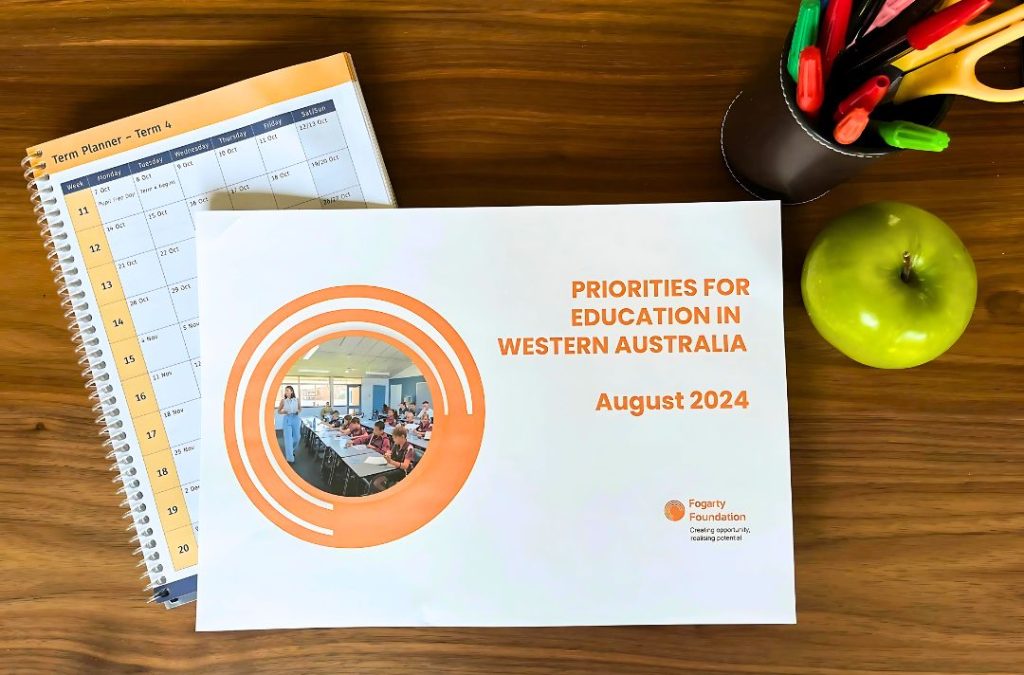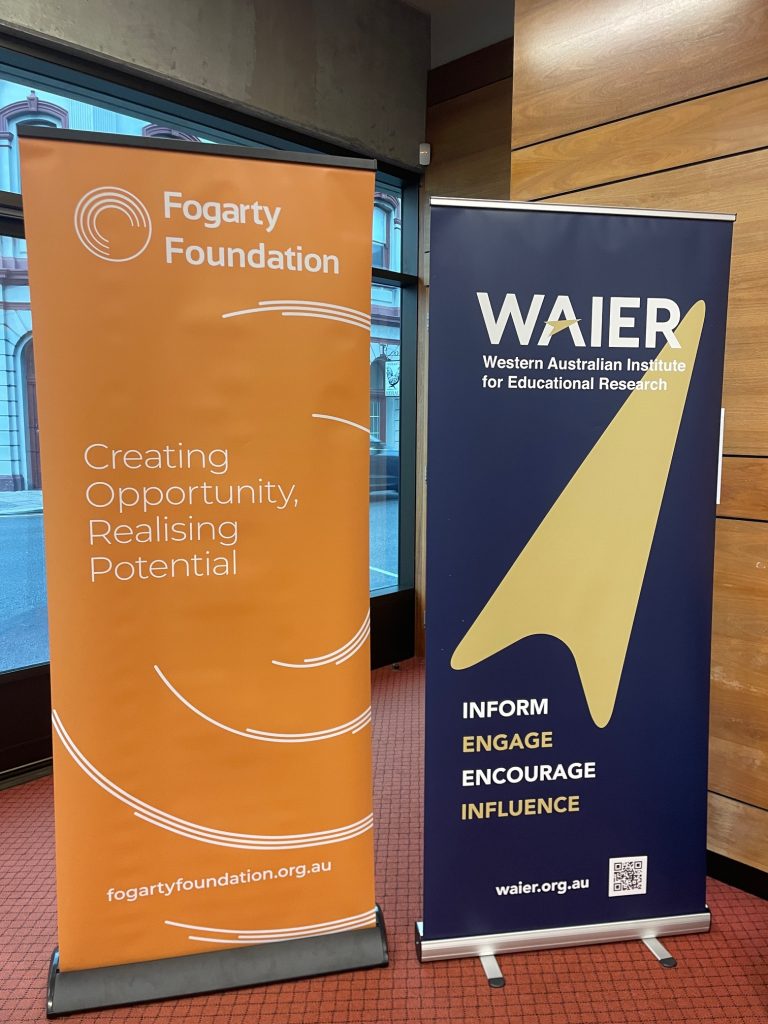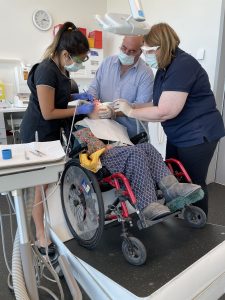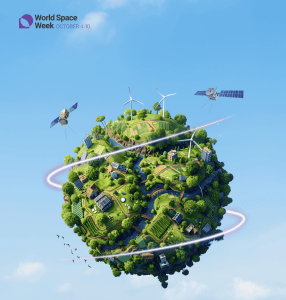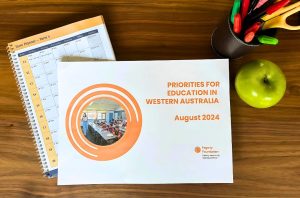A conversation with Kate Chaney
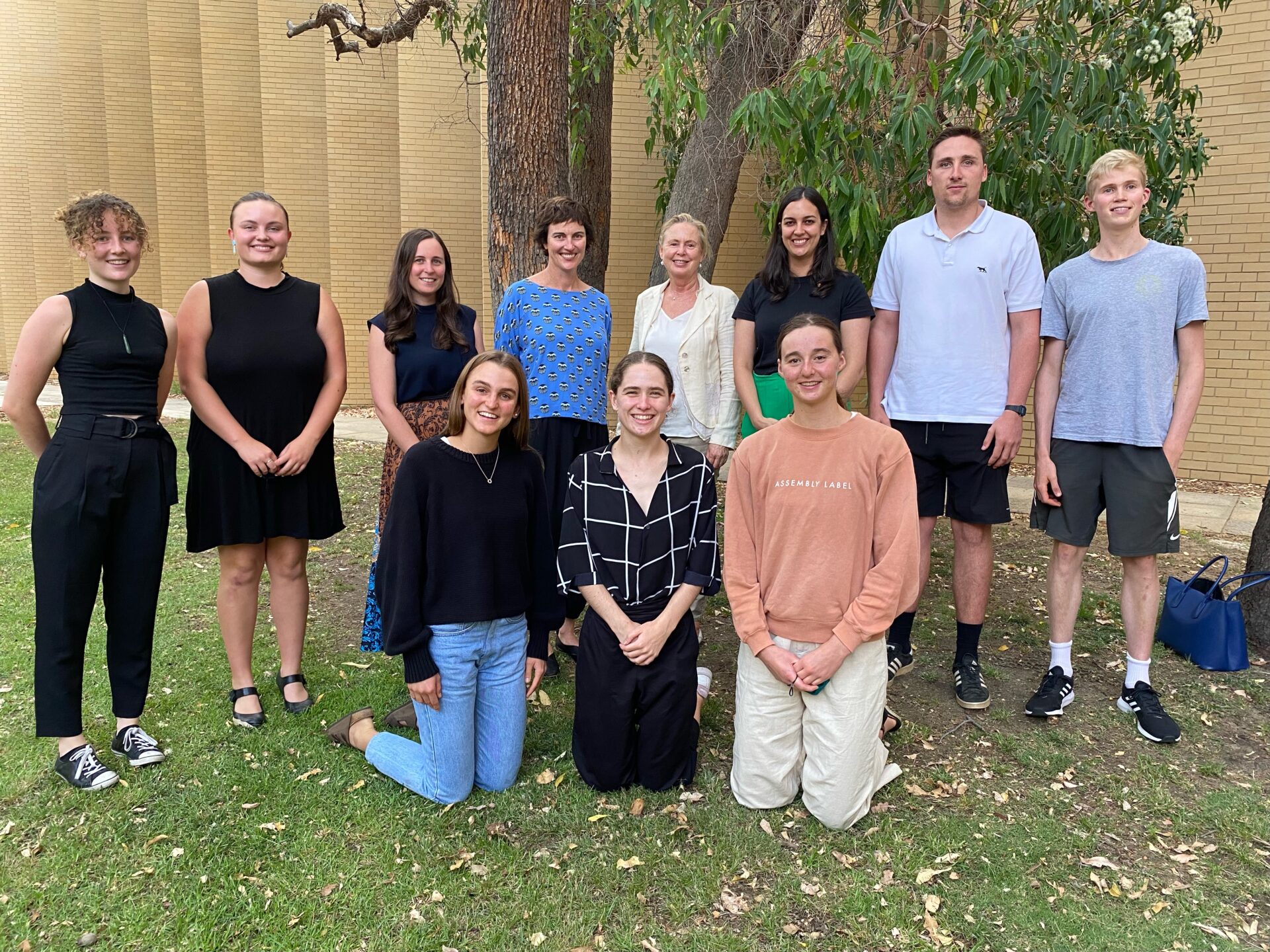
The UWA Fogarty Scholars joined Kate Chaney, independent candidate for the seat of Curtin, for an informal conversation on Wednesday. Kate said she was eager to speak with young people about the issues they are interested in.
Kate opened by explaining her background and what brought her to stand for a seat in Federal Parliament. She noted that a driving factor was her involvement on the board of Next 25, which is working to ensure that Australia maximises and shares its success across current and future generations, and her desire to play a more proactive part in addressing complex issues facing Australian society.
Kate believes her diverse career background in management consulting, law and strategy, as well as her senior corporate and not-for-profit roles, will enable her to contribute on several complex matters. She also acknowledged that there will matters she won’t know about. In talking about her decision to take the plunge to stand for Parliament, Kate said that she realised, “you only have one wild and precious life, so just go for it.”
Kate shared her four areas of focus with the Scholars, which were often touched on during the conversation with the group. These include:
- Integrity
- Climate change
- Economic opportunities and
- Inclusive communities.
The Scholars raised a wide range of topics important to them, spanning the implementation of the Uluru Statement from the Heart and how to achieve climate change through the creation of economic opportunities, to the provision of greater funding for sports beyond those with a high profile, the structural re-adjustment of industries, addressing and reducing the incidence of sexual harassment and gender inequality, to food and water security and homelessness.
How to find candidates aligned with Scholars’ individual values was also explored, and it was suggested that sites such as Vote Compass could be helpful in this regard. Kate also mentioned the site, They Vote for You which allows one to see how your electorate’s representative – or any member of Parliament – voted on various matters. Kate explained that only 0.4% of the population is a member of a political party and 50% of members of Parliament have only ever worked in politics.
The role of independents in Parliament was also explored, and Kate was asked what she hoped might result in 15 years. Three options she suggested were:
- Independents could cause the major parties to re-think their approach to various policies and their electorate.
- There could be a critical mass of independents, allowing them to work in different coalitions on various topics of interest. She noted whilst this could be logistically ‘messier’ than the two-party system, it could allow the larger, more complex issues to be dealt with more effectively (noting most of the matters before Federal Parliament are complex issues by their very nature); or
- The emergence of new parties, providing a viable alternative to the current ‘red’ vs ‘blue’ team, two party model.
The closing discussion centred on how young people could become more involved, with Kate providing several pointers. Whilst not suggesting that young people head straight for parliament, she stressed that, at a minimum, everyone should be thoughtful about their vote, because every vote counts.
Many thanks to Kate for addressing the group, and for Georgie Carey, Fogarty Scholar (2014) and now Deputy Mayor of the Mosman Park Town Council for being facilitator.
